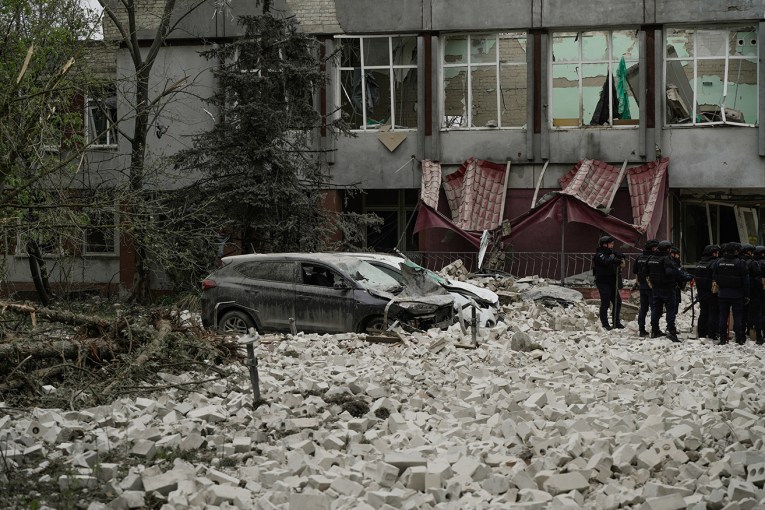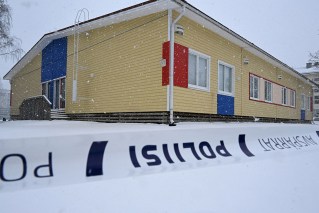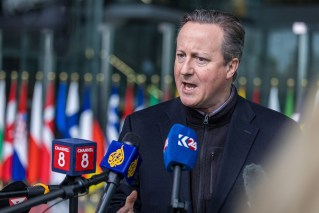‘Free movement in security’: France and Germany push for EU border reform
France and Germany are pushing to tighten European Union borders after suspected Islamist militants killed eight people in Paris, Nice and Vienna within a month.
The attacks have refocused the EU’s attention on religious extremism, which fell off the top of the political agenda after the 2017 defeat of Islamic State forces in the Middle East.
Under pressure to beef up security and reassure voters following the latest attacks, French President Emmanuel Macron and German Chancellor Angela Merkel say Europe’s troubled Schengen zone of control-free travel over open borders urgently needs fixing.
The attacks in Nice and Vienna involved assailants who moved freely between Schengen countries.
After discussions with Ms Merkel, Austrian Chancellor Sebastian Kurz, Dutch Prime Minister Mark Rutte and other top officials in Brussels, Mr Macron called for tighter security to prevent assailants crossing European borders unchecked.
“The threat of terrorism weighs on all of Europe; we must respond,” Mr Macron said on Tuesday.
“To reform Schengen is to allow free movement in security.”
Tweet from @EmmanuelMacron
Ms Merkel sided with Mr Macron in demanding stricter controls along the external frontier of the Schengen area, which brings together 26 countries, including most of the EU, Iceland, Norway, Switzerland and Liechtenstein.
“It is vitally necessary to know who comes in and who leaves the Schengen area,” Ms Merkel said.
National security concerns, chaotic migration into the EU from the Middle East and Africa and most recently the coronavirus pandemic have led to the re-emergence of border controls in the Schengen zone – eroding what has been hailed a milestone achievement in Europe’s post-World War II integration.
Mr Kurz also called for a more co-ordinated plan for dealing with foreign militants while Mr Rutte emphasised stopping “undesirable” foreign financing as a further avenue to tackle extremism.
Other ideas include stricter demands on online platforms to combat extremism, setting up a special European institute to train Muslim imams and effectively deporting people with no claim to asylum in Europe as well as criminals and suspected extremists.

German Chancellor Angela Merkel sided with the French President’s call for urgent border reform. Photo: Getty
EU justice and interior ministers meet on Friday – the fifth anniversary of co-ordinated attacks in Paris in which Islamist gunmen killed more than 130 people – to discuss a joint security response to the latest incidents.
Improving the sharing of security data and beefing up the bloc’s border force Frontex are also on the EU’s to-do list, according to their draft decision.
Crucially for Mr Macron, the ministerial decision includes language reinforcing EU countries’ rights to temporarily suspend free movement across Schengen borders during security alerts.
France has had such curbs on free movement in place since 2015.
Many of the proposals now on the table have proven difficult to agree upon, let alone implement, suggesting the 27 national EU leaders will have a hard nut to crack when they meet to decide concrete steps in December.
-AAP








